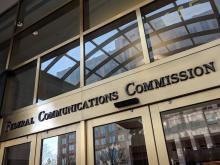Trump FCC Begins Dismantling Agency Civil Rights Reforms
After decades of redlining and broadband “digital discrimination” by the nation’s biggest telecom monopolies, the FCC finally began taking aim at the problem in 2023. Now the entirety of those efforts are poised to be dismantled, courtesy of the Trump administration’s broad, controversial frontal assault on discrimination reforms and civil rights.
The 2021 infrastructure bill set aside $42.5 billion to expand broadband into all unserved parts of the United States.
But it also tasked the FCC with crafting new rules taking aim at “digital discrimination.” On November 15th of 2023 the agency obliged, passing rules banning ISPs from broadband discrimination based on income, race, or religion.
Civil rights and digital equity activists were split on the potential impact of the rules, but they did agree on one thing: it was historic for federal policymakers to finally admit that telecom monopoly deployments had unfairly excluded many low income and minority neighborhoods from affordable, next-generation broadband access.



